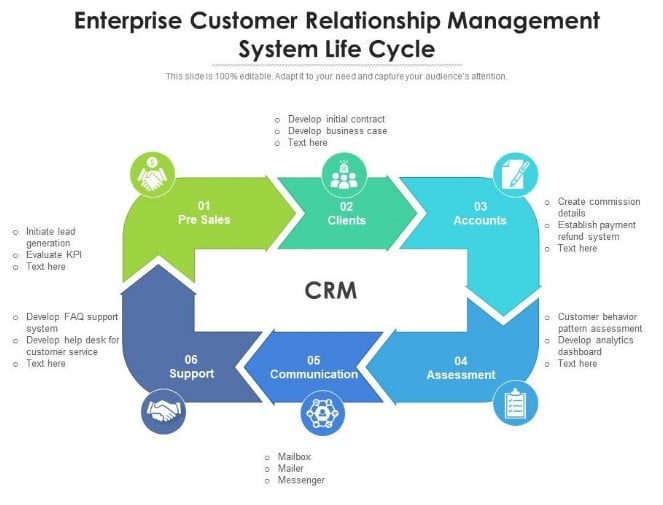The Do’s and Don’ts of CRM Implementation
The Do’s and Don’ts of CRM Implementation – Customer Relationship Management (CRM) is an essential component of modern business. It is a tool that helps businesses to manage their interactions with customers, track leads, and monitor customer interactions. Implementing CRM is a critical step for any business that wants to optimize its operations, improve customer service, and drive growth.
However, CRM implementation can be a daunting task, and many businesses struggle to get it right. In this article, we will discuss the do’s and don’ts of CRM implementation to help businesses avoid common pitfalls and ensure success.

The Do’s of CRM Implementation
Do Identify the Goals of CRM Implementation
Before starting CRM implementation, it is essential to identify the goals and objectives of the project. This helps to ensure that the CRM system aligns with the business’s objectives, and the implementation team knows what to prioritize. Goals can include improving customer service, increasing sales, or enhancing operational efficiency.
Do Involve All Stakeholders in the Process
CRM implementation affects various departments within the organization, and it is crucial to involve all stakeholders in the process. This includes sales, marketing, customer service, and IT teams. Involving all stakeholders ensures that everyone is on board with the project and understands the benefits of CRM implementation.
Do Choose the Right CRM System
Choosing the right CRM system is critical to the success of the implementation project. There are various CRM systems available, and businesses need to choose one that aligns with their goals and objectives. Consider factors such as cost, scalability, ease of use, and integration capabilities when selecting a CRM system.
Do Train Users on the CRM System
Training users on the CRM system is crucial to ensure its successful adoption. CRM systems can be complex, and users need to understand how to use them effectively. Provide comprehensive training to all users, including sales representatives, customer service agents, and marketing teams.
Do Continuously Evaluate and Improve the CRM System
CRM implementation is an ongoing process, and it is essential to continuously evaluate and improve the system. Regularly monitor system performance, gather feedback from users, and make necessary adjustments to ensure the system is meeting the business’s goals and objectives.
The Don’ts of CRM Implementation
Don’t Rush the Implementation Process
Implementing CRM requires careful planning and execution, and businesses should not rush the process. Rushing implementation can lead to mistakes, which can be costly to fix. Take the time to plan and prepare adequately for the implementation.
Don’t Ignore Data Security and Privacy
CRM systems store sensitive customer data, and it is essential to ensure that the system is secure and compliant with data protection regulations. Neglecting data security and privacy can result in legal and financial consequences.
Don’t Overlook Integration with Other Systems
CRM systems need to integrate with other business systems such as ERP, marketing automation, and customer support systems. Neglecting integration can lead to data silos and inefficiencies, which can hinder the CRM system’s effectiveness.
Don’t Neglect User Adoption
CRM implementation’s success depends on user adoption, and neglecting this aspect can lead to failure. Ensure that users are comfortable with the system and understand how it fits into their daily workflows. Provide adequate support and training to encourage user adoption.
Don’t Forget to Measure ROI
Measuring the return on investment (ROI) of CRM implementation is crucial to determine its effectiveness. Define clear metrics such as increased revenue, improved customer satisfaction, and reduced operational costs, and track progress against these metrics.
Conclusion
CRM implementation is a critical step for any business that wants to optimize its operations, improve customer service, and drive growth. However, the implementation process can be challenging, and many businesses struggle to get it right. By following the do’s and don’ts of CRM implementation, businesses can avoid common pitfalls and ensure success. It is crucial to identify the goals of CRM implementation, involve all stakeholders, choose the right CRM system, train users, and continuously evaluate and improve the system. On the other hand, businesses should avoid rushing the implementation process, neglecting data security and privacy, overlooking integration with other systems, neglecting user adoption, and forgetting to measure ROI.
Implementing CRM can be a complex process, but with careful planning and execution, it can lead to significant benefits for businesses. From increased sales to improved customer service, CRM can help businesses stay competitive in today’s market. However, it is essential to keep in mind that CRM implementation is an ongoing process that requires continuous evaluation and improvement to ensure its effectiveness.
FAQs
- What are the benefits of CRM implementation for businesses?
- CRM implementation can help businesses improve customer service, increase sales, and enhance operational efficiency, among other benefits.
- What are some common mistakes to avoid during CRM implementation?
- Businesses should avoid rushing the implementation process, neglecting data security and privacy, overlooking integration with other systems, neglecting user adoption, and forgetting to measure ROI.
- How can businesses ensure successful CRM implementation?
- By following the do’s of CRM implementation, such as identifying goals, involving all stakeholders, choosing the right CRM system, training users, and continuously evaluating and improving the system.
- Why is user adoption crucial for successful CRM implementation?
- The success of CRM implementation depends on user adoption, as neglecting this aspect can lead to failure. Users need to be comfortable with the system and understand how it fits into their daily workflows.
- How can businesses measure the ROI of CRM implementation?
- Businesses can measure the ROI of CRM implementation by defining clear metrics such as increased revenue, improved customer satisfaction, and reduced operational costs, and tracking progress against these metrics.